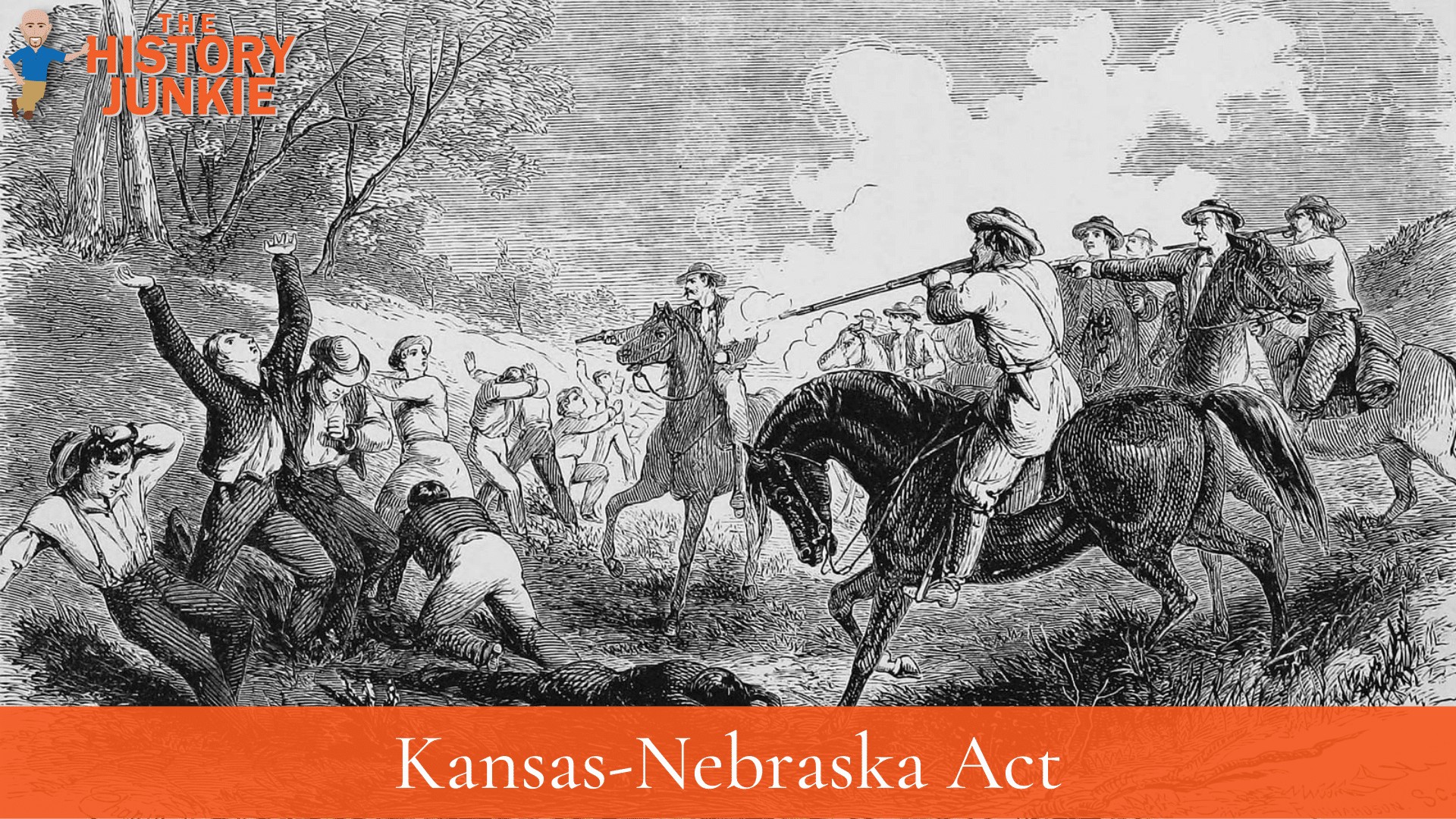The Kansas-Nebraska Act created the territories of Kansas and Nebraska. The popular sovereignty clause led to pro-slavery and anti-slavery people flocking to Kansas to try and vote for or against slavery.

Kansas-Nebraska Act Facts
The Kansas-Nebraska Act passed through Congress on May 30, 1854. It was drafted by Democratic Senator Stephen Douglas and President Franklin Pierce.
Its passing served as a repeal of the Missouri Compromise of 1820, which prohibited slavery north of the Mason-Dixie line
Its passage infuriated many Northerners who believed the Missouri Compromise to be a long-standing agreement. Obviously, it was popular in the South.
After its passing, pro-slavery and anti-slavery people rushed to settle the area in order to try and control the political landscape and make it a slave or free state.
The pro-slavery vote carried the election, and it set off a firestorm across the country.
The anti-slavery held another election, but the pro-slavery supporters refused to vote. The result was two different legislatures.
Violence erupted, and what became known as "Bleeding Kansas" began
Franklin Pierce sent Federal Troops in to stop the violence and enforce the law.
Another election was held, and the pro-slavery vote carried the election. They were accused of election fraud.
Congress did not recognize the election. Therefore, Kansas was not permitted to become a state.
Eventually, the anti-slavery vote outnumbered the pro-slavery vote. Another election was held, and the anti-slavery vote won the election.
Kansas was admitted to the United States right before the Civil War broke out.
